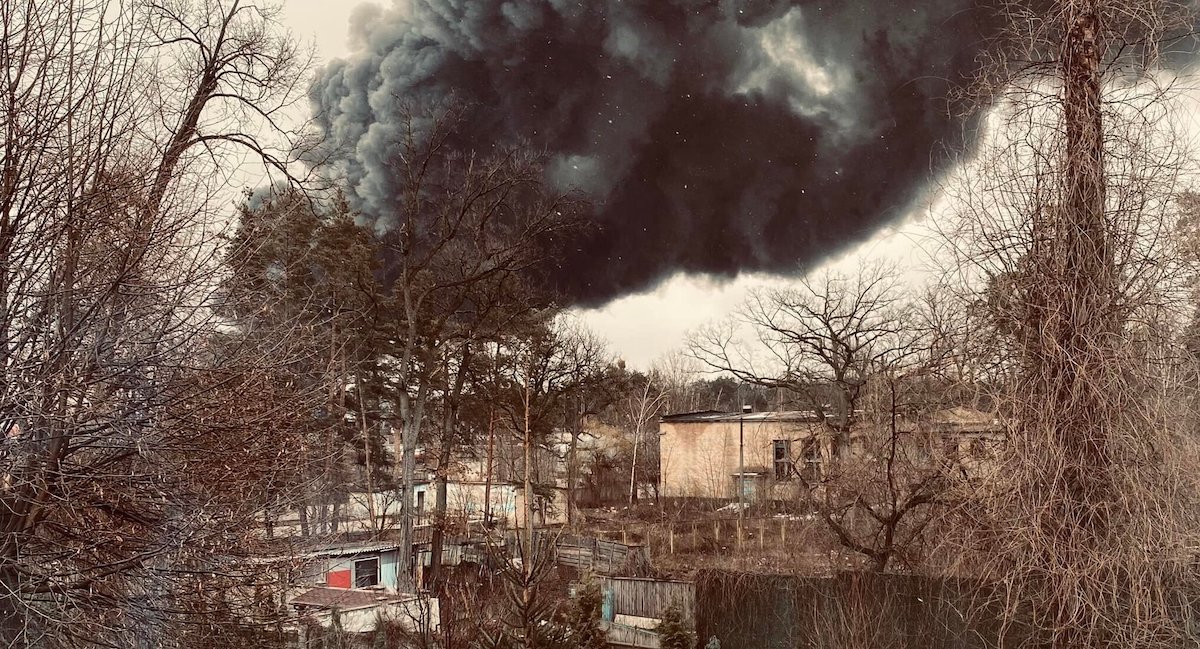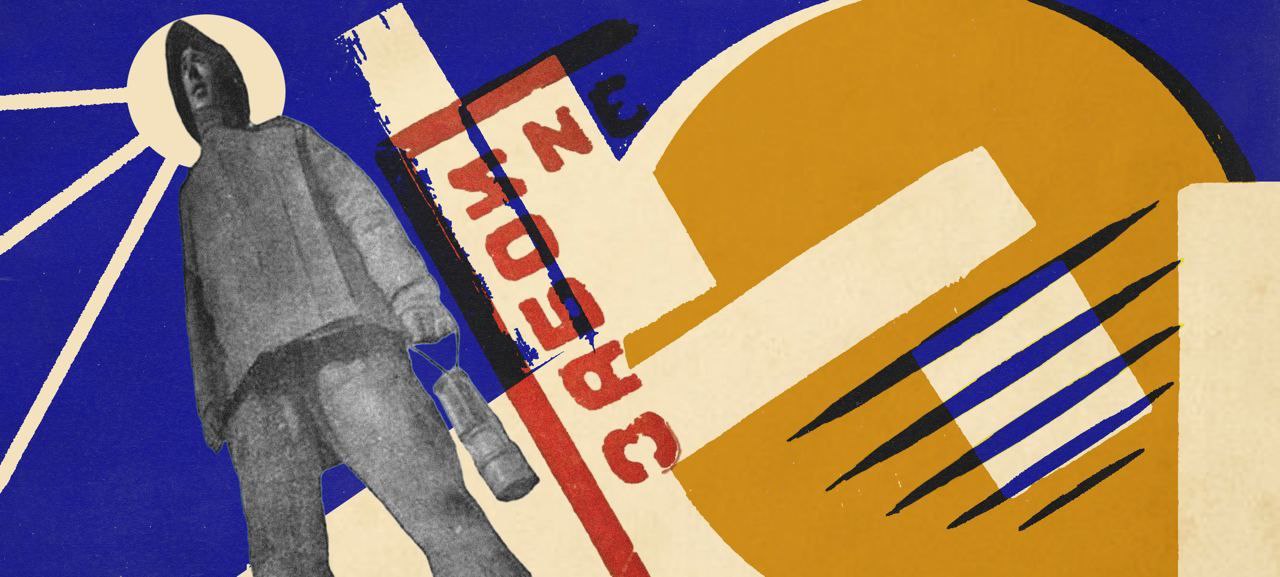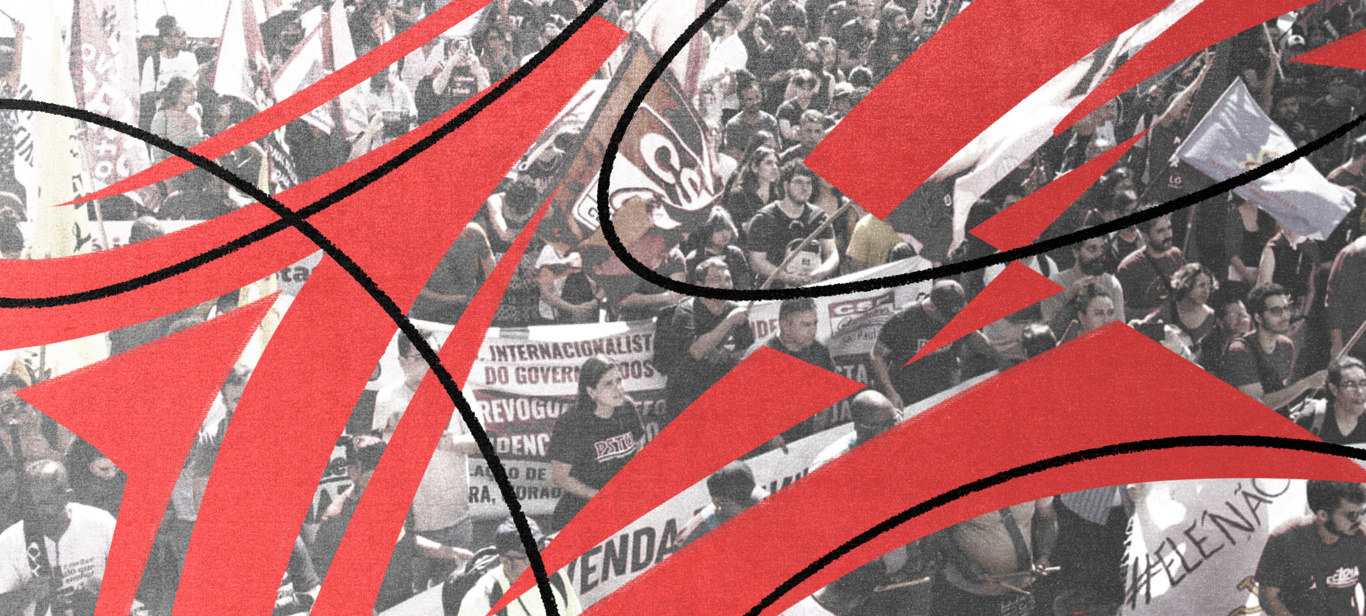For almost two weeks – from February 24th to March 10th – me, thirty other people, and six cats were living in the dormitory of Kyiv-Mohyla Academy in the township of Vorzel’, an administrative part of neighbouring Irpin’, so a suburb of Kyiv’s suburb. The majority of the building’s denizens moved out throughout the first couple of days of the Russian-Ukrainian war; I was among those who believed the quiet sleepy Vorzel’, once famous for its health resorts, would be a safe haven. I was proven wrong, and quite spectacularly so. Soon nearby Bucha and Hostomel’ became the arenas of heavy fighting. The only way to Kyiv led through them. Approximately on day four, we realized we were cut off. As the week wore off, we found ourselves under occupation.
Superlatives of war
War, it turns out, comes in shades and degrees. You go to sleep in the evening still reading about military clashes in the news; hear distant explosions the next day; feel the window panes shaking for the first time; realize that the place you have been calling home for the last seven years is surrounded by invaders; see the columns of enemy tanks from the window of your room; and end up under mortar shelling. All of this is war. Its comparatives and superlatives bleed into each other, what may have once seemed like a watershed moment becomes routine. You can sleep under artillery fire, you can read under artillery fire, you can do chores under artillery fire.
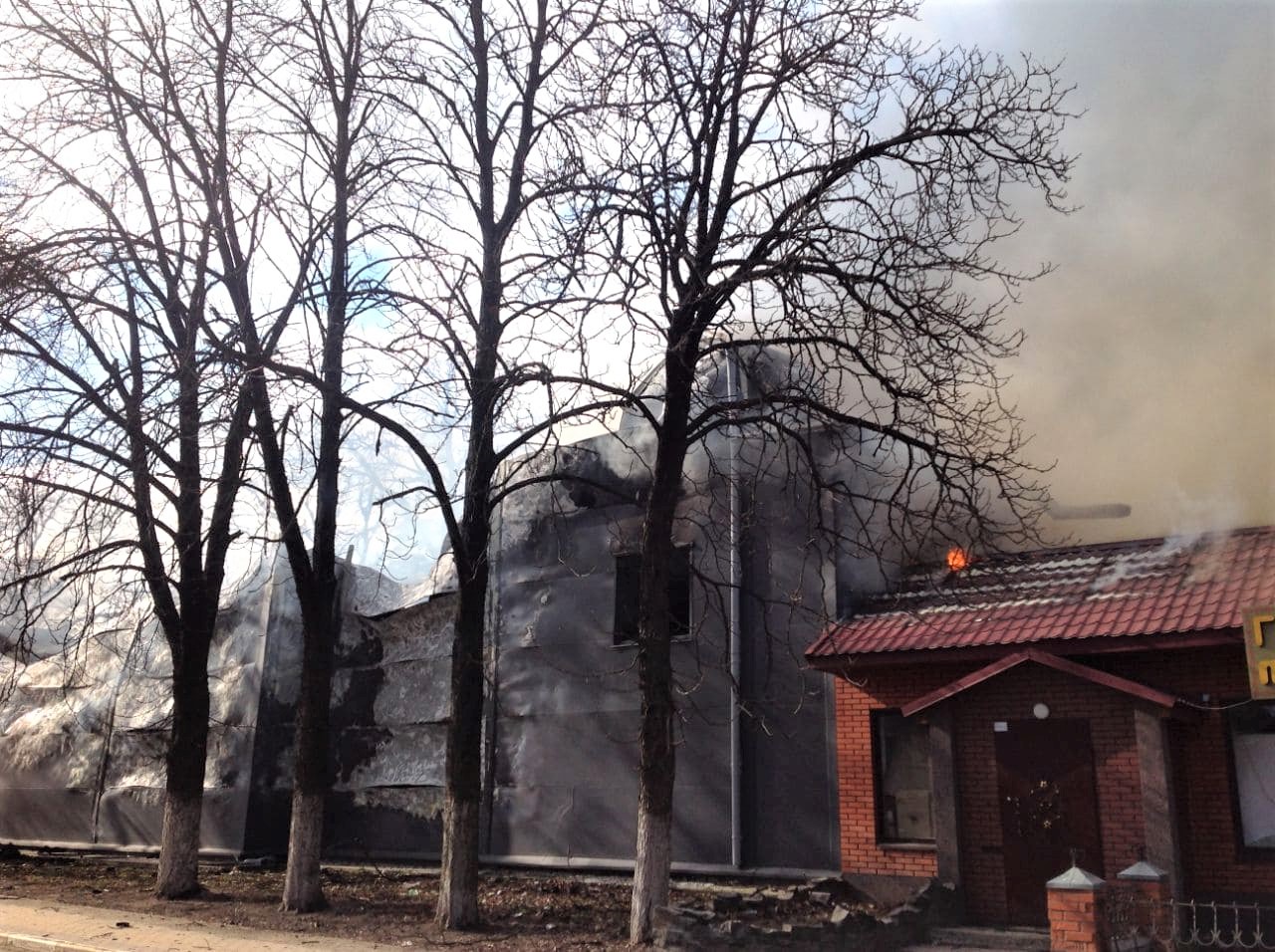
A direct hit of a non-residential building. Vorzel’. Late February 2022.
Strictly speaking, at first there were twenty-eight, not thirty; twenty-eight students, PhD candidates, refugees from Donbass. On the eighth day of our isolation, in the afternoon, a car emerged abruptly in front of the fence of our premises. Four people rushed out and spent several minutes racing back and forth through the street before we realized they were civilians and needed help. They stayed with us thereafter. The story they told: a family of four, three women and an elderly man, spent a week in the basement of their house before picking what they believed was a quiet day to try to “break through.” At a circular turn, some four hundred meters shy of the town limit, they caught sight of the column of Russian soldiers, who fired a flurry of gunshots into the car. Several bullets pierced the windshield, leaving a light scratch on the face of the driver. Miraculously, nobody was killed or injured.
Their cats were called Cindy and Yasya. An adorable white kitten and a belligerent Cornish Rex in her twilight years with steely eyes of a Viking crippled by a stroke, the creature that terrified our only male cat and the present writer.
Animals, it turned out, adapted at lightning speed. In just a few days’ time both of my lady-cats learned to crawl under the bed as soon as the strafing started. Later, conversely, they stopped paying attention to explosions, even those happening nearby, and continued eating, sleeping, or grooming though the cannonade. Same with people. If at first almost everyone raced to the ground floor, heading for the self-styled bomb shelter within the first echoes of the rafale, in the space of several days many chose to sleep in their rooms at night even when the sky towards Kyiv blossomed with a mud-orange glow as the aviation was doing its job somewhere in the dark. When the battle sounds ceased, we would go out to count “pryl’oty,” the hits. In total, four mortar – or so I was told – shells ended up on our premises. The closest one hit the fencepost, about thirty meters from my room. It cost us half a dozen broken windows. This counts as “lucky” by wartime criteria. Several nearby houses received direct hits and turned into smoldering ruins. We do not know whether anyone was inside at the time.
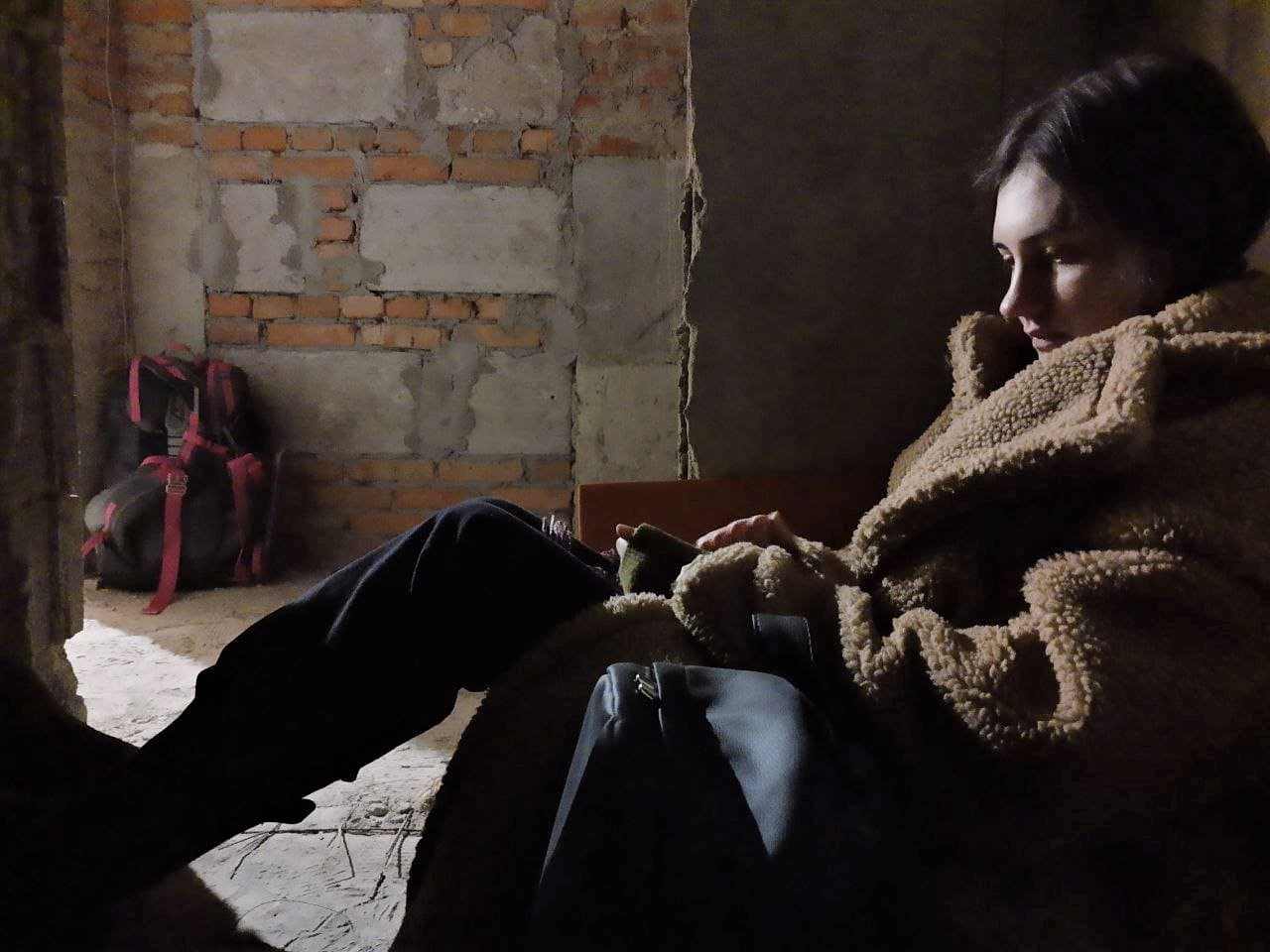
One of the dormitory’s residents in the shelter of the neighbouring house. Late February 2022.
Communities on the bookshelf; communities under shelling
Electricity and running water disappeared on the third day. My ability to read came back on the fourth. We were not allowed to have light – even candlelight – at nighttime, so our biological clocks eventually synchronized with the solar one: getting up at dawn, going to sleep soon after dusk. We used firewood to cook, wells to get drinking water.
Throughout the fifteen days between the start of war and evacuation I finished a monograph about the construction of gender in Vanuatu; a popular work dedicated to the history of the “Sacred Band,” the insuperable ancient Greek military unit comprised of three hundred lovers; and swallowed several hundred pages of a classical sociological study on the life of neurobiological lab. Yet, it was the Fragments of an Anarchist Anthropology by Leftist social theoretician David Graeber that provided the most productive foil for my Vorzel’ experience.
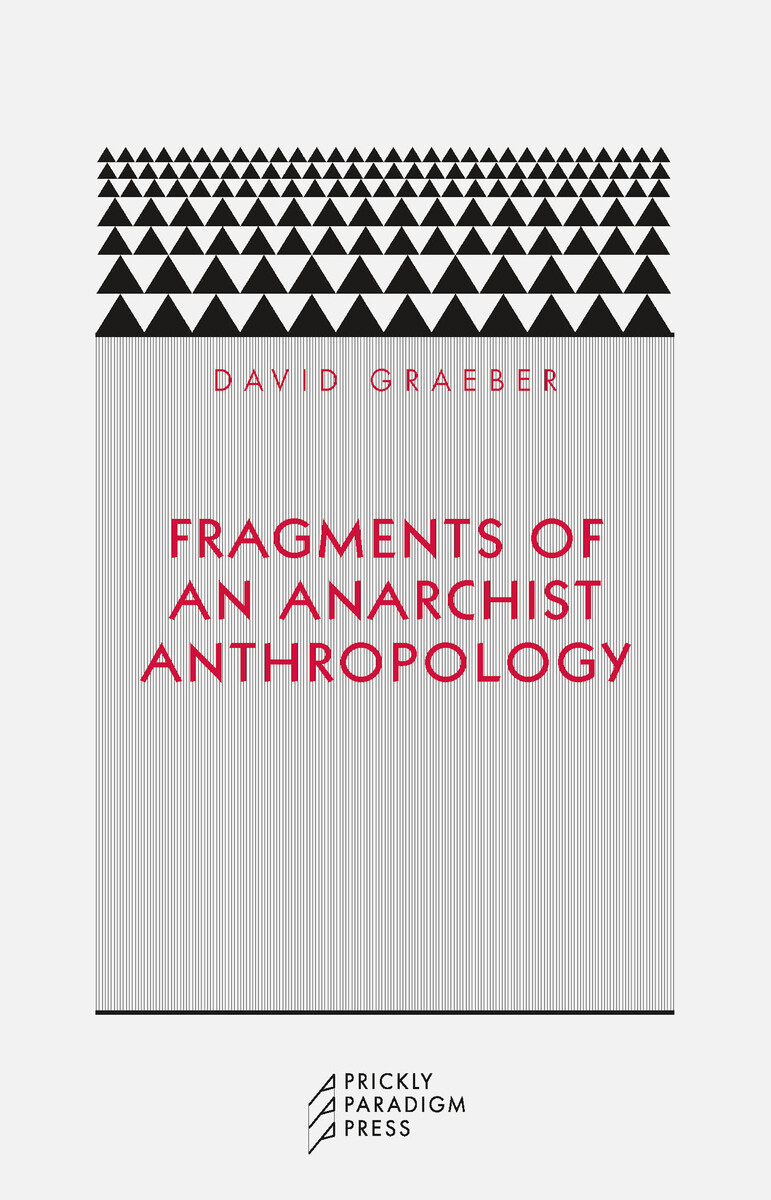
Graeber’s book is more of a manifesto than a full-fledged conceptual exposition; slightly more than a hundred pages in its Prickly Paradigm Press edition. (Due to the systematic omission of this latter detail, the present author managed to garner the genuine admiration of his isolation comrades: “You read the whole thing in only two days?”) Graeber undertakes an anarchist revision of the history of anthropology and reminds us how many of its classics – Radcliffe-Brown, Mauss, Clastres – harbored communitarian worldviews and moral compasses. He presents the ethnographic archive as a treasure trove of experiences and social experiments in non-hierarchical, even anti-hierarchical arrangements of human commonwealth. Towards its end, Fragments turns into an apologia of spontaneous creative impulses of egalitarian communities – Antiglobalists in Seattle, Zapatists in Latin America, the peasants of Madagascar. These forces, the author claims, can offer an alternative to the societies of coercion and discrimination; sprouts of freer, more just, more utopian – Graeber does not shy away from the word – futures are being created in their furnaces as we speak.
As I was reading Fragments, our little group gathered foodstuffs left by the residents of the dormitory and organized a community kitchen. Tasks were divided organically, without voting, drawing schedules, or codifying charters – people silently assumed responsibilities for the things they were able to take care of. Some woke up before sunrise to start a fire and heat up the water for tea. Some cooked. Yet others cleaned the bomb shelter. Even the most inept and least adapted individuals found roles to fill – say, being a water carrier. Every weird hobby, every dent on the surface of somebody’s biography found their beneficial uses. Archaeologists, people with rich experience of living in the wild, took care of the bonfire. Refugees from Donbass taught us how to lie down correctly during shelling. Plans to have a collective yoga class were repeatedly discussed – after all, we had a professional yoga instructor in our midst – but never came to fruition because of the consensus of laziness. So Graeber is right, then? Under the repressive scurf of late capitalism – the beach of a society of equals? No. Not exactly.
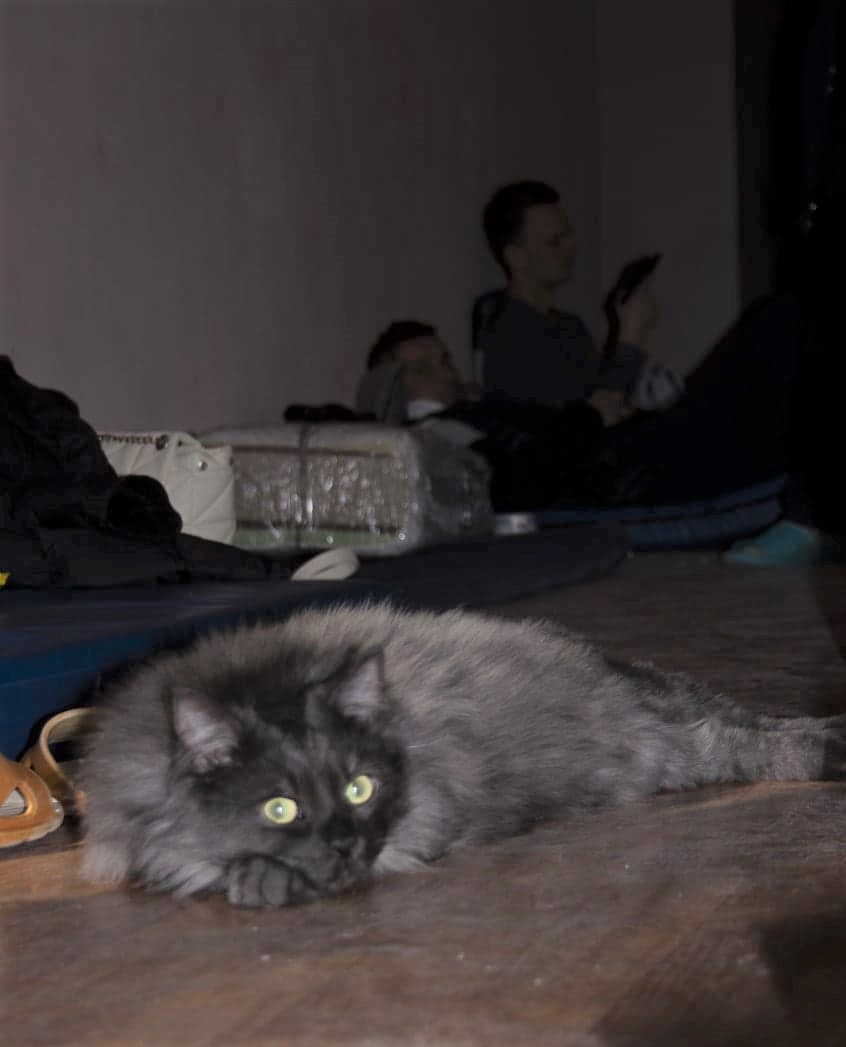
Abdullah the cat. Author of the article visible in the background: gray sweater, e-book in hand.
Gradually, it became apparent that not everybody had found their calling. A number of people – doubtlessly a minority, but a statistically significant one – did not choose any role and, it appeared, had no problem whatsoever with it. Moreover, even among the actively engaged, the measure of effort, put into the common cause, varied widely. I would be happy to be mistaken, but in the long run such emergent inequalities would have probably led to conflicts. In addition, the responsibilities inside the community got divided along the lines inherited from antebellum life. Most notably – the lines of gender. Even though both sexes participated equally in the preparation of food, it was girls and women who nearly always washed the dishes. And these were, mind, “progressive” students of one of the country’s top universities.
Something similar was taking place within the township itself. On the one hand, Vorzel’ community cooperated and self-organized. People brought food and clothes to the local maternity hospital, neighbouring communities-under-shelling shared information and supplies. On the other hand, long before the beginning of mass barrages, the local diaspora of spirits aficionados broke into two alcohol shops. Conversely, the worker (or, perhaps, the manager) of the town’s cosmetic store did not simply refuse to open her shop to the people when the connection with the outside world was irrecoverably lost, but even refused to sell items – female hygiene products included – for cash. On balance, as my comrade from Commons editorial team Aliona Liasheva observed in the case of war-transmogrified Lviv, Vorzel’ under Russian occupation witnessed the simultaneous unfolding of several directly opposite processes. Crisis, it appears, reveals both the best and the worst that people are and can be.
Manifestations of life
There was something sinister and methodical about the way Vorzel’ was gradually cut out of the canvas of Kyiv’s woods and suburbs, something akin to an autopsy in the anatomic theatre performed on a live animal. As our energy supplies dwindled and telephones refused to work, we became increasingly starved for information, increasingly dependent on hearsay and fragments of the speech of our loved ones. Since day two of the Russian occupation, stories about murdered civilians started to circulate. Stories about the sniper preying on the town from his post on the bridge atop the railway lines. Stories about the command center of the occupants inside Vorzel’s town hall. The latter turned out to be untrue. We are still not sure about the rest.
We told each other about the burial mounds of the late Iron Age, the proper way to conduct laboratory analyses for gonorrhea and chlamydia, about drawing natal charts. Cigarettes transformed into a universal currency, while paper money lost all its value and meaning. The warm days of winter passed and were replaced by cold spring with below zero temperatures and surprise morning snowfalls. We were told about the grotesque streets of Bucha, covered with Russian machines of war and human bodies. Big beautiful dogs with sad eyes left by their owners started coming to our kitchen.
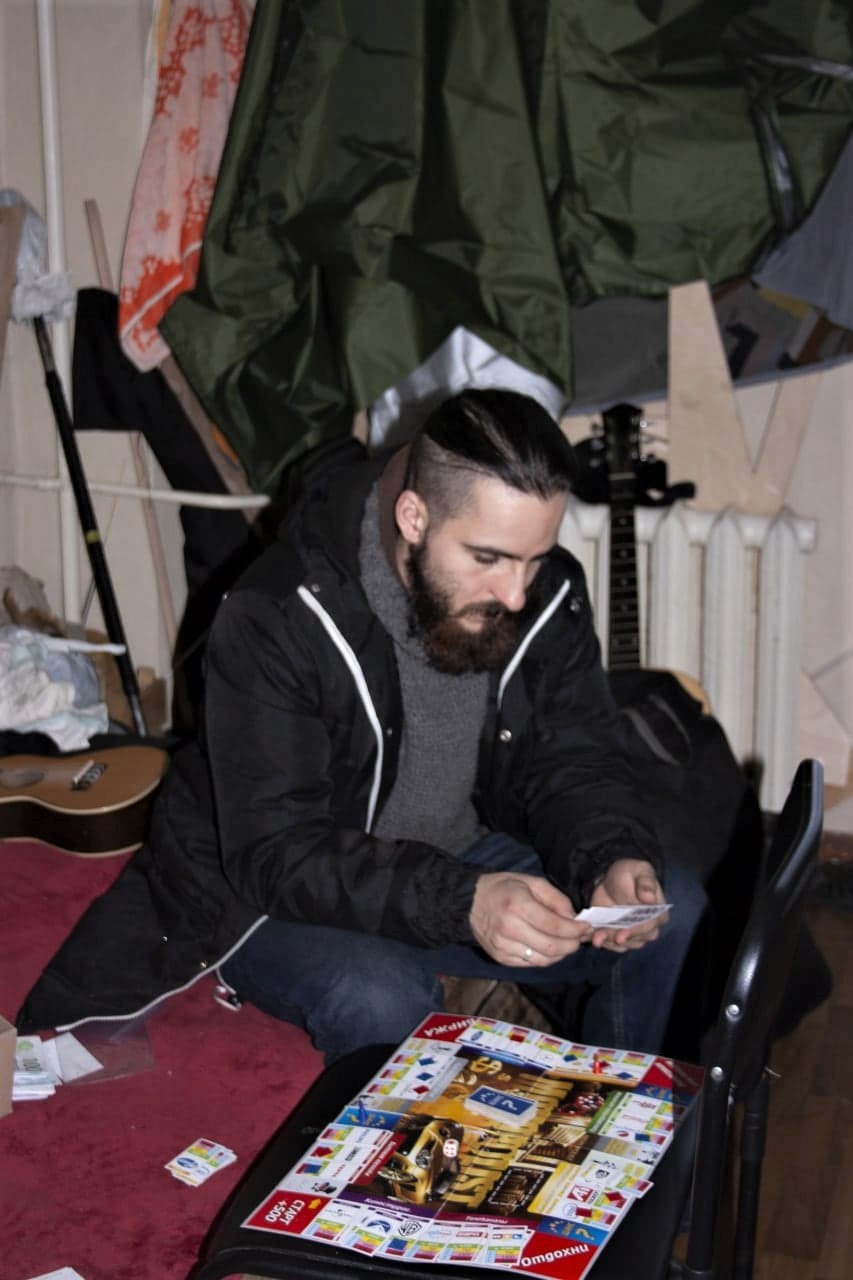
Playing monopoly under occupation. March 2022.
Life under occupation goes on. If not exactly uninterrupted, then at least untamed. Throughout the time of isolation, a new couple emerged in our shelter (in defiance of a two-week-long absence of a shower). Fifteen children were born in the maternity hospital down the street. On a penultimate day, when the evacuation of Vorzel’ was already under way, I accidentally met a Canadian who did not speak a single word of Ukrainian but was smiling and looked unreasonably happy against the background of the ragtag masses of townspeople who had gathered to wait for the humanitarian corridor. This man – David is my best guess – came to Ukraine at the very end of the last year, despite the warnings of his government and other world leaders about the imminent war. He did not regret his choice. Why? David (or was it Stephen?) showed me an engagement ring on his left hand. “Came to marry her. Proposed two times, both times she agreed. Heard about war, realized I might never see her again if I won’t come. She’s an opera singer, you know!” Stephen (or maybe David, after all) and his bride-to-be were sheltering in Vorzel’s church, together with a large group of locals. I insistently recommended him not to utter a single word out loud in the case he came across Russians: “Pretend you are a deaf-mute, use sign language.” Technically, of course, he would have to invent a sign language of his own.
